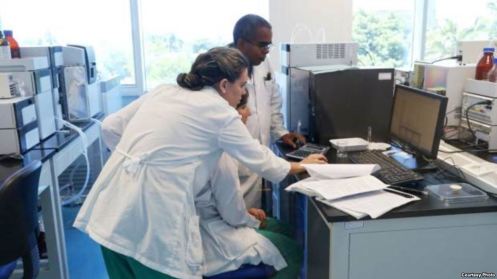
Juan Juan Almeida, 15 August 2017 — In an unprecedented decision that could have diplomatic repurcussions, the Angolan government rejected the 189 Cuban collaborators prepapred to travel to join the Cuban medical mission in that African country.
The unexpected decision was communicated to Havana through an email sent from Luanda by the ANTEX company, and received in Havana in the office of Roberto Morales, Cuban Minister of Public Health, on 31 July.
ANTEX is a Cuban military company, registered with the Cuban Chamber of Commerce which has signed important agreements to provide services and development of joint venture companies with the Angolan government.
On 24 February, with several ministers and representatives from both nations, Cuba and Angola celebrated the thirteenth session of the Intergovernmental Commission, which confirmed the need to establish and/or expand their bilateral and cooperation commitments in some sectors, such as planning and finance, education, construction, transportation, culture, energy, water, agriculture, geology and mining, fishing, urban planning, industry, communications, health and the biopharmaceutical industry.
The reasons why Angola is rejecting these Cuban aid workers are lost among various versions from sources that have preferred to remain anonymous. Among the problems mentioned are the payments for the services of the Cuban professionals, among other possible reasons.
The relationship between Angola and Cuba began in 1960, and was sweetened in 1961 when then-Cuban President Osvaldo Dorticós met with MPLA (People’s Movement for the Liberation of Angola) representation at the first conference of the Non-Aligned Movement in Belgrade and offered to provide, with charitable spirit, the Cuban experience.
The link began to take shape on June 25, 1975 in Maputo, when the late Angolan President Agostino Neto met with Armando Acosta, who presided over the Cuban delegation to the festivities for the independence of Mozambique. It was at that moment that Neto asked Acosta for urgent help to train thePeople’s Armed Forces of the Liberation of Angola.
But it was not until 15 November 1975, when the first Cuban ambassador to Luanda, Oscar Oramas, signed the establishment of diplomatic relations between the two countries with then-Angolan Foreign Minister José Eduardo dos Santos. From then until now, there had never been an incident that could tarnish bilateral relations.
The Cuban medical mission began in Angola at the same time as the Cuban troops arrived. During the conflict more than 450,000 Cubans passed through Angolan territory, among them doctors, teachers, engineers and soldiers.
